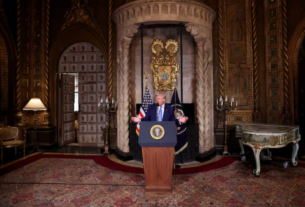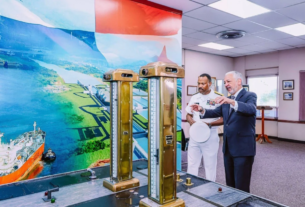Chinese Foreign Minister Wang Yi reaffirmed China’s support for peace in Ukraine while rejecting attempts to link the conflict to Gaza. He made this statement at a security conference in Munich, where world leaders discussed ongoing wars. China argues that the two conflicts should be addressed separately.
“Ukraine and Gaza are unrelated and should not be used as bargaining tools,” Wang said during his speech. He warned that connecting the two conflicts could complicate diplomatic efforts. His remarks signal China’s opposition to linking Middle East tensions with European security issues.
China has positioned itself as a neutral actor in the Ukraine war. It has called for peace talks but has not condemned Russia’s invasion. This stance has led to criticism from Western nations.
Last year, China sent a special envoy to Ukraine and Russia. These visits aimed to promote negotiations but did not produce concrete results. European officials remain skeptical of China’s influence in ending the war.
The United States and European Union want China to take a stronger stance against Russia. They have warned that Chinese companies supplying technology to Russia could face sanctions. China denies providing military aid and says its trade with Russia follows international rules.
Meanwhile, the war in Gaza continues to escalate. Israel has carried out military operations in response to Hamas’ October 7 attack. Thousands of civilians have died, leading to international calls for a ceasefire.
Some countries have linked Gaza to Ukraine in diplomatic talks. They suggest resolving both conflicts together to gain political leverage. China opposes this approach and insists each crisis requires a separate solution.
Beijing’s stance on Gaza aligns with its broader Middle East policy. It has condemned civilian deaths and called for peace talks. At the same time, it has deepened economic ties with Gulf nations, including Saudi Arabia and Iran.
At the Munich conference, European leaders voiced concerns about global instability. French President Emmanuel Macron warned against letting one conflict overshadow another. Other leaders stressed the need for clear diplomatic strategies.
China continues to expand its role in international negotiations. Last year, it brokered a deal restoring diplomatic ties between Saudi Arabia and Iran. Beijing argues that its approach focuses on long-term stability.
Ukraine remains cautious about China’s involvement. President Volodymyr Zelenskyy has urged Beijing to take a firmer stance against Russia. Despite this, China has avoided directly criticizing Moscow.
As the Ukraine war continues, diplomatic solutions remain uncertain. China supports negotiations but refuses to pressure Russia. Its role in both Ukraine and Gaza remains limited to diplomatic statements.




